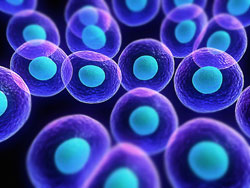
Fasting as little as eight days a year could help bodies become healthier, according to new research from the University of Southern California.
Fasting two to four days at a time every six months causes stem cells to awake from their normal dormant state, and start regenerating. Researchers discovered this practice eliminated damaged and older cells, and caused new cells to be born, effectively renewing the immune system. This is the first time any natural intervention has ever been shown to trigger this self-renewal.
In mice and humans, white blood cell counts were significantly lowered after long periods without food. These bodies are vital to the human immune system. But, when their numbers decline to a critical point, pathways for hematopoietic stem cells were switched on. These cells manage the immune system and generate new blood.
“When you starve, the system tries to save energy, and one of the things it can do to save energy is to recycle a lot of the immune cells that are not needed, especially those that may be damaged,” Valter Longo of the USC Davis School of Gerontology, said.
Going without food for 48 to 96 hours shifts human bodies to consume stores of fat, glucose (sugar), and ketones (created when fats are broken down for energy). Unhealthy white blood cells are also broken down, so that their components can be reused for the next generation of cells. This process is akin to recycling for the immune system.
After a period of fasting, human immune systems generate new blood cells when nutrients start flowing back into the body. Researchers at USC wanted to know what drives body systems to rebuild the cells.
Protein kinase A, an enzyme known to inhibit cell regeneration, was reduced in the systems of people who are fasting, the study found. Concentrations of a growth-factor hormone called IGF-1 were also lowered in those who have not eaten in days.
Of course most people would not want to fast on only water for two to four days at a time and it is probably not safe except under medical supervision. There are several alternatives that produce some of the same benefits including juice fasting and time restricted eating for people that are healthy enough to do a less extreme form of fasting.
Juice fasting involves drinking raw fruit and vegetable juices usually for one day at a time. Some people juice fast once a week and others once a month. It is important to use at least 50% vegetables to make juice and not overdue the fructose sugars that are concentrated in fruit juice. Typically between 2 and 3 quarts of juice are consumed per day. There are now many brands of pressure pasteurized juices available in health food stores that are raw. High pressure is used to destroy the bacteria instead of heat. Water is not restricted on a juice fast.
Another approach to fasting which has produced beneficial results is time restricted eating. It involves eating with no limit on quantity during an 8 hour consecutive period and then going without food until the next day. Water is available to drink 24 hours each day and not restricted. Some people eat this way every day. A scientific study of time restricted eating which showed impressive results was published in Cell Metablolism.
Reference: Prolonged Fasting Reduces IGF-1/PKA to Promote Hematopoietic-Stem-Cell-Based Regeneration and Reverse Immunosuppression. Cell Stem Cell, Volume 14, Issue 6, p810?823, 5 June 2014





